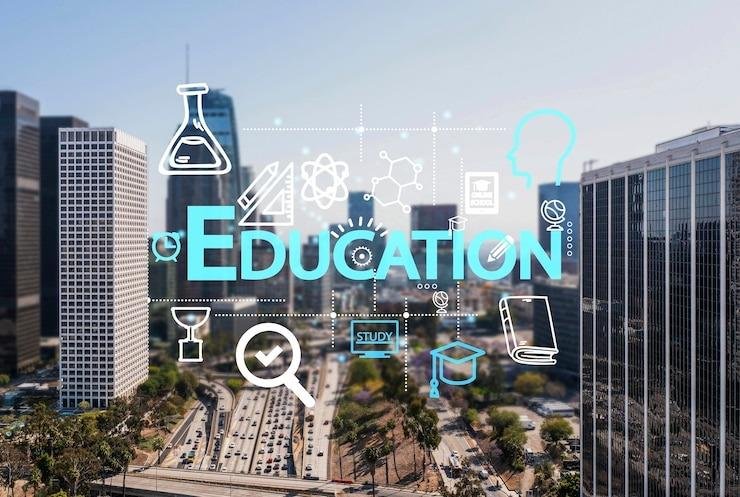The educational landscape is evolving rapidly, driven by advancements in technology and new regulatory frameworks. One of the most significant reforms in recent times is the New Education Policy 2020 (NEP 2020), which aims to overhaul the Indian education system to make it more inclusive, flexible, and integrated. A critical tool in this transformation is school ERP software, which plays a pivotal role in aligning educational institutions with the objectives of NEP 2020.
What is School ERP Software?
School ERP (Enterprise Resource Planning) software is a comprehensive digital solution designed to manage and streamline various school operations. It integrates multiple administrative functions such as student enrollment, attendance tracking, grade management, timetable scheduling, and communication between stakeholders. By centralizing these functions, school ERP software helps in reducing manual workload, improving accuracy, and enhancing overall efficiency in school management.
Alignment with NEP 2020 Objectives
NEP 2020 focuses on several key areas such as holistic development, innovative teaching methods, and improved administrative efficiency. Here’s how school ERP software supports these objectives:
- Enhanced Administrative EfficiencyNEP 2020 emphasizes the need for efficient administrative processes in schools. School ERP software provides a unified platform for managing student records, faculty details, and financial transactions. This integration reduces the time and effort spent on manual data entry and management. As a result, educational institutions can allocate more resources to teaching and learning activities, aligning with NEP 2020’s goal of enhancing educational quality.
- Holistic Development of StudentsThe policy promotes a holistic approach to education, focusing on the development of cognitive, emotional, and social skills. School ERP software supports this by offering tools that track and assess student performance across various parameters, not just academics. Features like co-curricular activity management, behavior tracking, and personalized learning plans help in monitoring and nurturing different aspects of student growth.
- Support for Innovative Teaching MethodsNEP 2020 encourages the adoption of innovative and technology-driven teaching methodologies. School ERP software aids this transition by providing digital tools for interactive learning, online assessments, and virtual classrooms. These features enable teachers to implement modern teaching practices, such as flipped classrooms and blended learning, which are in line with NEP 2020’s vision of a more dynamic education system.
- Improved Communication and CollaborationEffective communication between students, parents, and teachers is a cornerstone of the NEP 2020 framework. School ERP software includes communication modules such as parent portals, teacher-student messaging, and automated notifications. These tools facilitate seamless information exchange, keeping parents informed about their child’s progress and ensuring that teachers receive timely updates on student needs.
- Data-Driven Decision MakingThe NEP 2020 advocates for data-driven approaches to improve educational outcomes. School ERP software provides detailed analytics and reporting tools that help administrators and educators make informed decisions. By analyzing data on student performance, attendance trends, and resource utilization, schools can identify areas for improvement and implement targeted interventions.
- Streamlined Assessment and Examination ProcessesThe policy emphasizes the need for a comprehensive assessment system that goes beyond traditional exams. School ERP software supports this by automating the examination process, from scheduling and conducting tests to grading and generating report cards. This automation ensures a fair and transparent assessment system, reducing the chances of errors and bias.
- Support for Skill Development and Vocational TrainingNEP 2020 highlights the importance of vocational education and skill development. School ERP software can integrate vocational training modules and track student progress in skill-based programs. By providing tools for curriculum management and industry collaboration, ERP systems help schools align their offerings with market needs and enhance students’ employability.
Conclusion
As schools navigate the changes brought about by the New Education Policy 2020, school ERP software emerges as a crucial enabler of these reforms. By enhancing administrative efficiency, supporting holistic student development, and facilitating innovative teaching methods, ERP systems play a significant role in transforming educational institutions. Investing in robust school ERP software not only aligns schools with NEP 2020’s objectives but also prepares them for a future where technology and education are intricately intertwined. As we move forward, embracing these technological solutions will be key to achieving the vision of a modern, inclusive, and effective education system.



More Stories
Industrial Revolution 4.0 and the Dawn of Industry 5.0
Why Choose Dubai for Your Business? A Guide to Top Business Setup Consultants and Solutions Providers
Durable Custom wax Paper: Keeps Food Fresh